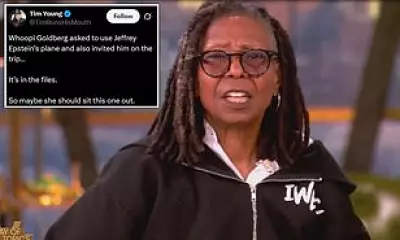
In a scathing monologue that has sent ripples through the entertainment industry, veteran comedian and political commentator Bill Maher has publicly excoriated the organisers of the Emmy Awards for what he deems a act of petty partisan politics.
The controversy centres on the show's iconic In Memoriam segment, a sombre tribute to figures from the television world who have passed away in the last year. According to Maher, a proposed tribute to Charlie Kirk, the conservative firebrand and founder of Turning Point USA, was deliberately vetoed by Emmy producers.
Maher's Blistering On-Air Rebuke
Maher did not mince words during his HBO show, Real Time. He framed the decision not as a simple omission but as a conscious act of exclusion driven by Kirk's conservative viewpoints. "This is not an oversight; it's a snub," Maher declared, arguing that Kirk's significant contributions to television media through his popular online shows warranted recognition.
He painted a picture of a Hollywood culture so consumed by its own liberal orthodoxy that it refuses to acknowledge the passing of anyone outside its ideological bubble, regardless of their professional impact. Maher suggested the decision was "pathetic" and emblematic of a wider intolerance within the industry.
The Heart of the Controversy
The core of Maher's argument rests on two key points:
- Professional Recognition vs. Political Affiliation: Maher contends that the Emmys should honour professional achievement in television, not political loyalty. He highlighted Kirk's role as a host and producer of successful digital programs that fall under the broad umbrella of television media.
- The Principle of Inclusion: By refusing to honour a conservative figure, Maher accused the Emmy establishment of hypocrisy, claiming it pays lip service to inclusivity while practicing exclusion based on politics.
The incident has sparked a fierce debate on social media and within commentary circles, with many echoing Maher's sentiments about censorship and bias.
A Divided Industry Reaction
While Maher's supporters have applauded his stance against perceived woke culture, critics have been quick to respond. Some argue that the In Memoriam segment has always been selective and is typically reserved for individuals with a more traditional and widely recognised career in mainstream broadcast or cable television.
Others have questioned the comparison to established industry figures who were included, suggesting Kirk's primary influence was in political commentary rather than in shaping the television medium itself. Despite this counter-argument, Maher's critique has successfully ignited a conversation about where the boundaries of the television industry lie in the digital age and who gets to decide which legacies are worth remembering.





